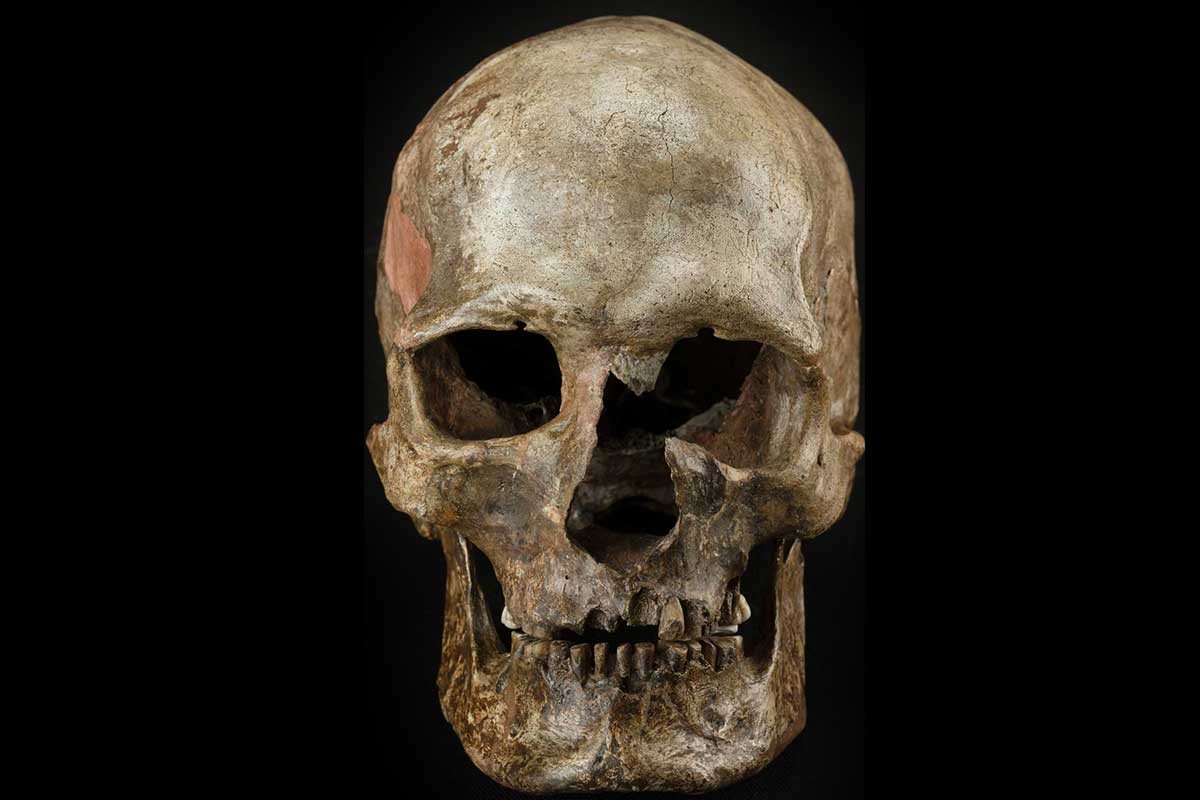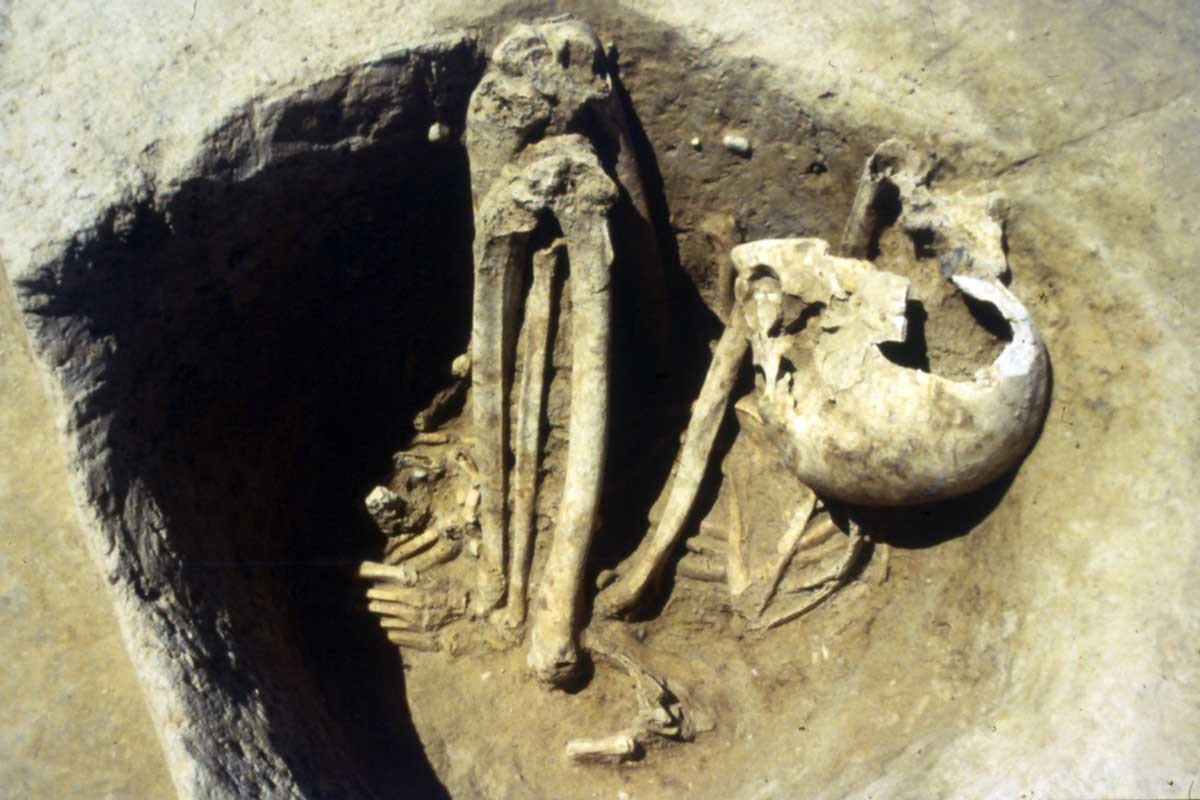- Joined
- Jan 25, 2014
- Messages
- 11,946
- Reaction score
- 1,223
- Points
- 159
Mystery invaders conquered Europe at the end of last ice age
New Scientist | 4 February 2016
This caught my eye and I thought I would share ...
New Scientist | 4 February 2016

DNA was taken from ancient human bones, like this skull, from the Dolnte Vestonice burial site in the Czech Republic
Europe went through a major population upheaval about 14,500 years ago, at the end of the last ice age, according to DNA from the bones of hunter-gatherers.
Ancient DNA studies published in the last five years have transformed what we know about the early peopling of Europe. The picture they paint is one in which successive waves of immigration wash over the continent, bringing in new people, new genes and new technologies.
These studies helped confirm that Europe’s early hunter-gatherers – who arrived about 40,000 years ago – were largely replaced by farmers arriving from the Middle East about 8000 years ago. These farmers then saw an influx of pastoralists from the Eurasian steppe about 4500 years ago, meaning modern Europe was shaped by three major population turnover events.
Waves of immigration
The latest study suggests things were even more complicated. About 14,500 years ago, when Europe was emerging from the last ice age, the hunter-gatherers who had endured the chilly conditions were largely replaced by a different population of hunter-gatherers.
Exactly where this new population came from is still unclear, but it seems likely that they came from warmer areas further south. “The main hypothesis would be glacial refugia in south-eastern Europe,” says Johannes Krause at the Max Planck Institute for the Science of Human History in Jena, Germany, who led the analysis.
As conditions improved, it was these southern hunter-gatherers who took advantage and migrated into central and northern Europe, he says – meaning there was a genetic discontinuity with the hunter-gatherer populations that had lived there earlier.

His team analysed mitochondrial DNA extracted from 55 ancient Europeans, the oldest of whom lived 35,000 years ago – during the Pleistocene – and the youngest just 7000 years ago, during the Holocene. Previous studies focused largely on the Holocene, looking at human remains from the last 10,000 years.
“This is the first glimpse at Pleistocene population dynamics in Europe,” says Krause. “Little has been done on this older material, mostly due to lower abundance of material and lesser preservation due to age.”
“The population turnover after 14,500 years ago was completely unexpected,” says Iosif Lazaridis at the Harvard Medical School in Boston. “It seems that the hunter-gatherers of Europe braved the worst of the ice age during the last glacial maximum but were then replaced when the ice age had begun to subside.”
Europe’s unusual history
The picture is not yet clear, however, as the study only looked at mitochondrial DNA sequences, rather than the longer nuclear DNA of other studies. “Mitochondrial DNA tells only part of the story of a population,” says Lazaridis. It is important to try to extract nuclear sequences from the Pleistocene-aged skeletons to find out more about this earlier population turnover, he says.
The work also may solve a long-standing mystery of why a certain genetic signature is missing in people of European ancestry. All people today are members of one of a relatively small number of distinct groups based on their mitochondrial DNA, which is passed down the maternal line. The distribution of people in each group gives us a sense of how humans spread across the world in prehistory.
It always seemed that Europe had a very unusual history of colonisation because one major haplogroup – the M clade – is almost entirely missing, despite being very common across Asia and even found in Native Americans. Instead, another major haplogroup – the N clade – is most common.
“Some authors had argued that the M and N haplogroups represented two different dispersal events from Africa,” says Toomas Kivisild at the University of Cambridge.
But Krause and his colleagues found that the M clade might actually have been common in Europe before the population turnover 14,500 years ago: three of the 18 most ancient humans they studied belonged to the M clade.
This suggests that the initial colonisation of Europe and Asia may have involved the same ancient population – and that the M group was actually lost in Europe much later, perhaps connected in some way to the mystery upheavals 14,500 years ago.
SOURCE
This caught my eye and I thought I would share ...
